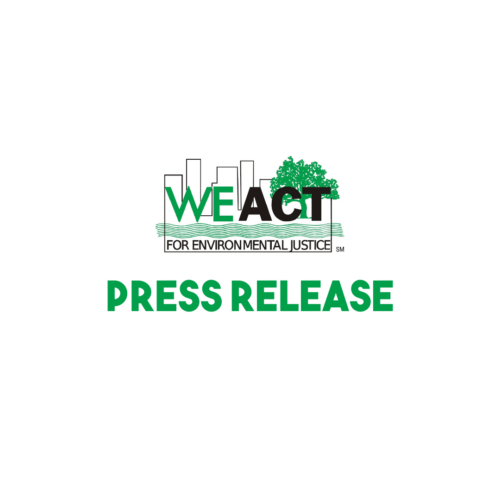FOR IMMEDIATE RELEASE
January 10, 2024
Contact: Chris Dobens, 718-679-8542, chris@weact.org
NEW YORK — In yesterday’s annual State-of-the-State address, New York State Governor Kathy Hochul once again fell short in addressing the disproportionate impacts of climate change, air pollution, toxic chemicals, and other environmental hazards on what the State has designated as disadvantaged communities.
Studies show that these communities – low-income communities and communities of color – are disproportionately impacted by climate change, pollution, and nearly every environmental hazard. Yet studies also show that these communities contribute the least to these issues, despite being forced to bear the brunt of their adverse effects. And that is why we would like to see the Governor commit additional funds to the important initiatives we have highlighted below, inclusion of key initiatives that have been overlooked, and a greater focus on addressing the environmental disparities faced by these communities.
First of all, we would like to thank the Governor for including in her annual address the following initiatives that WE ACT has been advocating for:
We thank the Governor for launching Statewide Solar for All, which will use the Energy Affordability Program to encourage community solar projects throughout the state, reducing greenhouse gas emissions and saving households as much as $40 per year on their energy bills.
We also thank the Governor for expanding the funding for the Clean Green Schools program so that schools in vulnerable communities can now also serve as cooling centers, helping address extreme heat.
And we thank the Governor for following the recommendation of the Climate Action Council to develop a comprehensive climate change adaptation and resilience plan for the state that includes assessing impacts on disadvantaged communities.
While the State-of-the-State address did include mention of these initiatives, we would like to see a stronger commitment from the Governor:
We applaud the Governor for including the elimination of the 100-foot rule, which was one of the requirements in the New York Home Energy Affordable Transition (NY HEAT) Act, a bill with more than 70 sponsors. The long-outdated 100-foot rule, based on the obligation to serve, gave utilities an excuse to build unnecessary gas infrastructure and force New Yorkers to pay them more than $200 million every year for it. But the Governor did not include the other part of NY HEAT, which would cap household energy bills at 6 percent for all families. This is important because New Yorkers with a low or moderate income and New Yorkers of color pay on average a disproportionately higher percentage of their household income on energy, and often live in older, less energy-efficient homes that require more energy to heat and cool. Failing to include this provision is really a disservice to the more than 1.2 million New Yorkers struggling with their energy bills this winter.
And while the Governor did mention the extension of the Second Avenue Subway into East Harlem, we would like to see a broader investment in that community. East Harlem faces many challenges – including heat vulnerabilities and flooding, social inequities such as homelessness and addictive disorders, and gentrification pressures in housing – and the extension of this subway should serve as a catalyst to address these issues. We would like the state to take the lead on an East Harlem masterplan to revitalize this community and ensure its long-term, environmental, economic, and cultural health.
Finally, the Governor failed to address these key environmental and climate justice initiatives:
The Governor failed, once again, to address New York’s State’s lead crisis. Unfortunately, New York leads the nation in cases of children with elevated blood levels. Twelve percent of the children born in the state in 2019 – 28,820 children – have been diagnosed with blood lead levels greater than 2 micrograms per deciliter. Childhood lead poisoning rates for communities across New York State are five to six times higher than those in Flint, MI at the peak of its water crisis. We urge the Governor to champion the Lead Paint Right to Know Act (S.88/A.1687), which ensures that testing homes for lead during the buying and selling stage happens and closes the loophole that allows property owners to avoid knowing their homes’ lead status.
Governor Hochul’s 2024 State-of-the-State Address is available here. And to see what policies we have prioritized for this year, WE ACT’s 2024 Policy Agenda is available here. We look forward to working with Governor Hochul, state legislators, and their staff on these issues, and we also look forward to reviewing the details of the Executive Budget later this month.
# # #
WE ACT for Environmental Justice is a Northern Manhattan membership-based organization whose mission is to build healthy communities by ensuring that people of color and/or low-income residents participate meaningfully in the creation of sound and fair environmental health and protection policies and practices. WE ACT has offices in New York and Washington, D.C. Visit us at weact.org and follow us on Facebook, Twitter, and Instagram.
